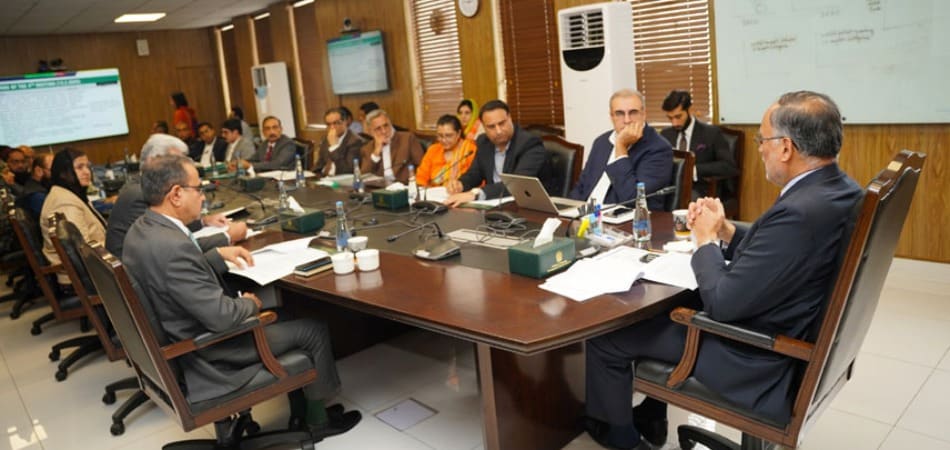ISLAMABAD: The federal government has directed all provinces—particularly Balochistan—to urgently submit actionable development plans and performance indicators aimed at accelerating socio-economic uplift in historically neglected areas.
The directive, spearheaded by Federal Minister for Planning, Development, and Special Initiatives Ahsan Iqbal, comes as part of a broader strategy to address underdevelopment in Balochistan, the Newly Merged Districts (NMDs), South Punjab, and Interior Sindh. The call was issued during the fifth meeting of the Prime Minister’s Committee on the Socio-Economic Domain, where Balochistan was prominently mentioned as a priority.
Provincial finance ministers, Secretary Planning Awais Manzur Sumra, members of socio-political committees, and officials from NACTA were among the key participants. Member Governance Dr. Adnan Rafiq presented a compliance report on earlier decisions, following which the Minister emphasized the need for result-oriented and measurable frameworks.
Balochistan’s Plan Urgently Sought by APEX Committee
The federal government specifically asked the Government of Balochistan to expedite the submission of its development plan to the APEX Committee, underscoring the need for targeted interventions in youth development, entrepreneurship, and inclusive socio-political reforms in the province.
Recognizing Balochistan’s long-standing grievances over unequal access to education, infrastructure, and employment opportunities, Ahsan Iqbal stressed the importance of measurable progress in these areas. “We must ensure that development is visible and meaningful for the people of Balochistan,” he said.
Youth and Education: Reforms to Address Isolation and Inclusion
Addressing systemic challenges in education, the Minister directed universities across the country to abolish ethnic- or caste-based hostel allotments, a move particularly relevant to multi-ethnic regions like Balochistan. Mixed accommodations, he said, would help promote national unity and reduce isolation among students from marginalized areas.
The meeting also raised concerns over the lack of follow-up on over 5,000 students from Balochistan who were awarded scholarships between 2013 and 2018. “We don’t know where they are now. There’s no structured tracking or engagement,” Ahsan Iqbal noted. The Higher Education Commission (HEC) and universities have been instructed to establish mentorship and career counseling frameworks, especially for students from remote and underserved regions.
Reviving Iqbal’s Vision: A Cultural and Philosophical Imperative
The meeting also announced a series of national events to commemorate the 150th birth anniversary of Allama Iqbal. Ahsan Iqbal called Iqbal “not just a poet, but a philosophical necessity for Pakistan,” lamenting the failure to embed his vision into national consciousness. Funding has been allocated for the Iqbal Cultural Institute, and the HEC has been tasked with creating Iqbal Chairs in universities.
In addition, NACTA will develop teacher training modules aimed at promoting interfaith harmony—a step that may have important implications in culturally diverse areas like Balochistan, where sectarian sensitivities often intertwine with ethnic and regional dynamics.





